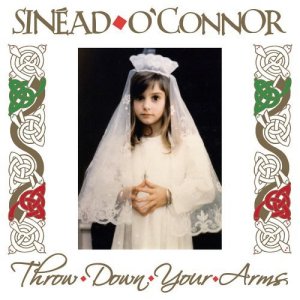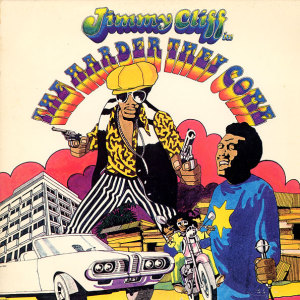Sinéad O’Connor – Throw Down Your Arms Keltia KMCD166 (2005)
I do respect Sinéad O’Connor. The media likes to focus on “controversy” in her “personal life.” Mostly that is a product of her refusal to play by the rules of the mainstream media, and they always seek to punish and discredit those people — or else feign doing so to manufacture controversy, which is always good for grabbing attention in the slimiest way possible. But even when doing things like tearing up a photo of Pope John Paul II on television (a stunt excised from most rebroadcasts), and less than two weeks later, after Kris Kristofferson introduced her as becoming “synonymous with courage and integrity,” being booed (quite ironically!) at the Bob Dylan: The 30th Anniversary Concert Celebration, in response to which she sung/spoke/shouted a rendition of Bob Marley‘s “War” that was omitted from the CD release, wasn’t she, well, entirely right? It’s hard to look back on the problems the catholic church has faced with child abuse coverups and not find O’Connor vindicated. And there are other examples of her being righteously correct against an onslaught of support for self-serving and brutal exploitation. But much of the press’ reaction to her has to do with what seems like a genuine desire to be a normal person, rather than a complete narcissist myopically dedicated to creating an outrageously artificial public persona (which seems to sustain the profit margins of said same press). As a celebrity musician, the closet comparison might be Neil Young, especially in his later years. Both sometimes seem too normal and well-adjusted to have survived the entertainment industry as long as they have. Though Young never generated nearly the same hostility that O’Connor did.
Anyway, O’Connor is really a great pop singer. That much is beyond question. Her voice can carry a whole song by itself. Yet, the musical accompaniment on her albums, while complete professional and lacking any obvious flaws in performance, can be stylistically rather plain. Throw Down Your Arms, on paper, looks poised to be yet another disastrous reggae album by a white onlooker. But — surprise! — it is actually rather well-executed. O’Connor’s voice is refreshingly well-adapted to this style of music, bringing to bear an astute sense of drama and theatrics, without pushing that too far. The music, produced by stalwarts Sly & Robbie, is effective, never a liability or a distraction. The album dips a bit toward the end. Still, while no great landmark, this album is way better than it deserves to be.



